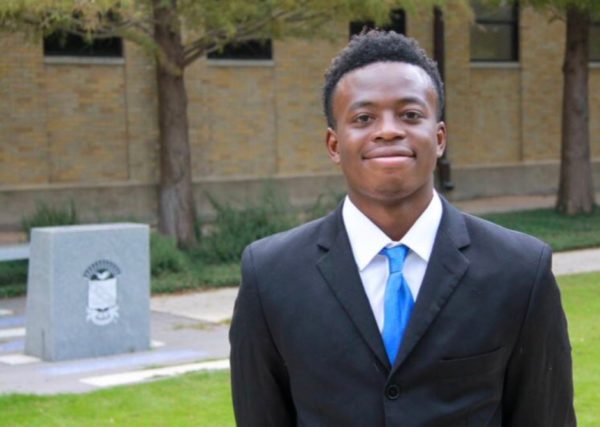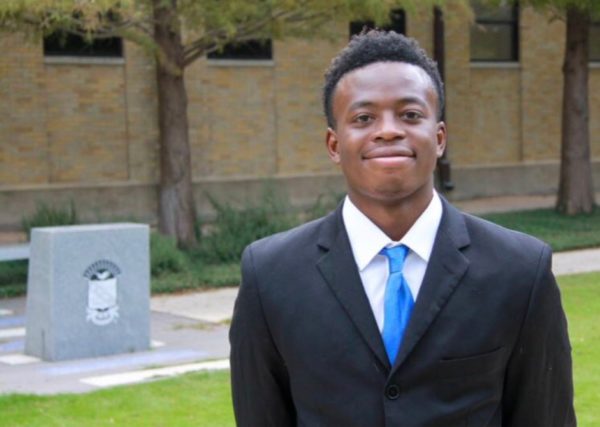‘This Is Not a Basketball Arena, It’s a Study Area’: Security Guard Calls Campus Police In Response to Group of Black Baylor Students Gathering In Library
A group of Black students at Baylor University was having a meet-and-greet at one of the school’s libraries last week. But a security guard interrupted the group, ordering the students to pipe down because they were being too loud.
“This is not a basketball arena, it is a study area,” he chided several of them.
According to a letter penned by one of the students involved, the group of Black students was singled out for making too much noise in a section of the library designed for student interaction.
When the group explained that the comment was racist and told the security guard they were allowed to mix and mingle, he called the police on them.
Now the private Christian school in Waco, Texas, is reeling from another controversy that calls into question its racial tolerance.
“Why do students have to deal with cops in an area that is for them?” Sam Onilenla wrote in a two-page essay he posted to his Twitter and Instagram pages Jan. 28.
Onilenla, a 21-year-old management major from Aurora, Colorado, organized the Jan. 27 “get together” as a community event for Black students on campus. His intentions were to bring together upperclassmen and underclassmen students who might not know each other.
The group of Black students met in the “garden level” of the Moody Memorial Library, a commons study area in the library’s basement.
The area is designated for students to talk, mingle and work in study groups. Moody’s library policy guards against “undue distraction or disturbance” and dictates “no person shall act in a manner which is inconsistent with the general norms.” But it lists no specific provisions that dictate what norms are expected in the library’s garden level.
Onilenla insisted that the area is known as a place where students can congregate without concerns of being too loud.
“It’s just a space where we can interact and talk as loud as we want, however long we want,” he said during a phone interview Wednesday.

But that unwritten rule was put to the test the night of the gathering by a security guard who claimed he received a noise complaint. He approached a group of Black freshmen and told them, “This is not a basketball arena, it is a study area,” according to Onilenla’s letter.
The guard’s comment struck a nerve with the students, who instinctively recognized it was laced with a stereotype about Blacks’ affinity for basketball. Jonah Shaw, one of the freshmen, tried to explain the racial undertones of the comment to the security guard. Onilenla said he and a female student intervened to find out what was going on. They also asked the guard why he was trying to quiet the group in a space designated for socializing.
At that point, the students say the security officer walked away from them and radioed the Baylor University Police Department for backup.
When campus police arrived, the group of students explained to them what happened. One officer initially described Shaw’s reaction to the comment as “juvenile.” But Onilenla said he, Shaw and Runo Egi, another student in the group, stepped away to talk with one of the officers and explained the racial implications of what was said. They also clarified the ground rules of the library’s basement-level study area.
“We were just trying to explain to him and he was trying to get an understanding of the situation,” Onilenla told Atlanta Black Star. “He was ultimately like, ‘Why am I being called to a library incident?’”
The officer left following the conversation. No one was arrested or detained. But the damage had already been done.
“After that we went back downstairs, but the vibe wasn’t the same,” Egi told student newspaper The Baylor Lariat. “Everyone was kind of upset. A whole bunch of people left. It was kind of just like, ‘Dang, that ruined the mood in the study space.’”
Onilenla noted that a white sorority was having a pledge class on the other side of the library. That group was never accosted by police or security.
The campus police department did not immediately respond to requests for an incident report.
Onilenla said BUPD Police Chief Brad Wigtil has reached out. The two were expected to meet Thursday, Feb. 4. Onilenla has also been asked to offer solutions to Kevin Jackson, the vice president of student life. But he was not putting his faith in the administration to fix the problem.
“I think the action will start with the students, and then they will have to respond to those actions accordingly,” he said of making changes. “I don’t feel like it’s all on me to do it. But I feel like because of what is happening, we could start doing it right now.”
Last week’s dust-up was not an isolated incident. It was the latest in a series of racial hiccups at Baylor in recent years. In 2016, the hashtag #BURememberWhen trended at the school. Students, faculty and alumni took to Twitter to share racially offensive interactions they’ve experienced at the school.
In 2017, a white fraternity was suspended after it threw a “Mexican” themed off-campus party where revelers chanted “Build that wall,” and sported outfits that evoked negative Hispanic stereotypes. The party sparked student protests on campus and calls for the university to implement new diversity policies.
Baylor created a Diversity, Equity and Inclusion office in 2018. Brittney Wardlaw, the attorney who created the office, spoke out in October. She told Spectrum News 1 that she was forced to resign after she tried investigating discrimination complaints and helped advocate for the recruitment of more minority faculty and staff members. Wardlaw said the university’s administration had no true intentions to make changes to improve the racial climate on campus.
“Why does this institution have every single person of leadership is white,” she told the TV station. “Every single President’s Council member, every single provost, every single dean. We had a huge celebration because we had a Black woman who is the chair of department now. Let’s celebrate because a school that is 175 years old cannot manage to find a Black person competent enough to lead.”
The university issued a brief statement Jan. 29 chalking the recent incident at the library up to a “cultural disconnect” and pledging to make changes to address race relations on campus.
“We strive to be a welcoming community on our campus as part of our Christian mission,” the statement read. “And over the past year, we have made a strong commitment to doing better and being better. In this instance, there was a cultural disconnect, and we simply missed the mark.”
Many former students pointed out that the statement lacked any real solutions and criticized the university for delivering a generic response.
“What does this even mean?” alumna Karla Coleman Garcia wrote. “What are your action items? How will you truly address this? Whoever wrote this polished PR statement needs to know that some POC alumni are still processing all the microaggressions if not straight up racism that happened on that campus.”
Baylor officials said they’ve increased diversity-related training opportunities and mandated it for faculty, staff as well as students on campus.
In July, after the Board of Regents acknowledged the university’s roots in Confederacy and its historical connection to slavery, Baylor launched a 26-member commission to study the school’s racial past. According to university spokeswoman Lori Fogleman, Baylor also started a diversity scholarship program last July, has revised its civil rights policy, revamped the university’s “equity office” and a special adviser to the president for equity anmd campus engagement.
“Diversity, equity and inclusion are key priorities for the administration as Baylor strives to provide a caring community for students, faculty and staff,” Fogleman said in an email to Atlanta Black Star late Wednesday. “The university has made progress in many areas, but also recognizes much more needs to be done in the fulfillment of Baylor’s mission. We understand that actions speak much louder than words and this must become an institution-wide approach.”
Onilenla, in his letter, took the university to task for its racial past. He called the officer and security guard’s comments “demeaning” to “black scholars” and said many can’t understand how it feels to be a Black student at a predominantly white institution. He also blasted the school for not living up to the Christ-like ideals it publicly espouses.
“They do not understand we don’t feel comfortable being our authentic selves on a campus that claims it is Christian, but not (upholding) Christian values toward its students of color,” Onilenla wrote.
Ironically, Onilenla said his experience at Baylor over the past three years has forced him to build his Christian faith. He described last week’s incident as a final straw in a long line of “microaggressions.”
“I think people think that because this happened, that we are soft. And that is not the case,” he said. “If you walk a mile in our shoes, you will understand that this is built up tension and built up frustration.
“All we’re trying to do is build a home for ourselves,” Onilenla added. “If people walked a mile they might actually not feel comfortable. And if you’re not helping us want to feel comfortable here, then you have to take a good hard look at yourself.”

